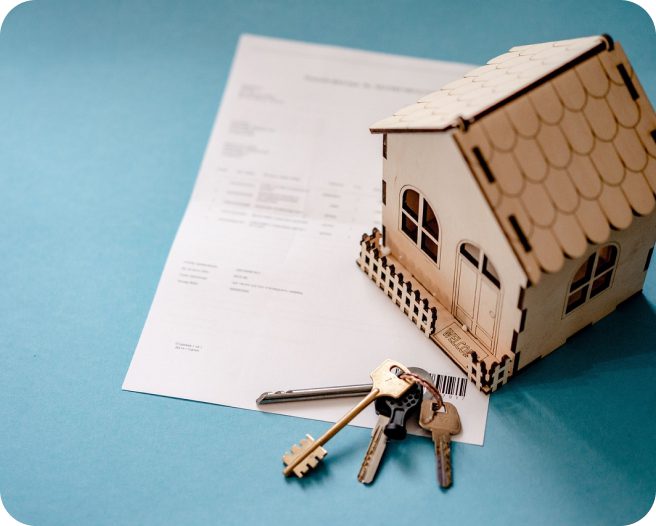Investment Property Loan
A non-primary dwelling is bought or refinanced with an investment property loan to generate rental income or property value expansion. These loans have higher interest rates, down payments, and approval requirements than primary house mortgages.
Rental property mortgages are riskier than principal home mortgages since they cover homes, apartments, and commercial real estate.
Who is an Investment Property Loan for?
Investment property loans are for non-primary homes. Real estate investors, landlords, and small business owners who acquire, rent, or sell residential or commercial properties. Applicants should have good credit, income, and property management or investing experience. The lender usually requires these borrowers to plan to rent or sell the home after renovation or market appreciation.


How Do You Get Approved For an Investment Property Loan?
For investment property loans, lenders demand financial stability and low default risk. This usually demands a high credit score, a low debt-to-income ratio, and a significant down payment of between 20% and 30% of the property’s price.
Lenders evaluate your income, including rental income, to ensure you can pay the mortgage. Also, consider real estate investing experience. Various lenders have various terms and conditions, so shop around. A well-planned investment business plan might also boost your application.
Types of Investment Property Loans
Various investment property loans suit different investing strategies:

Conventional Mortgages
These loans are offered by traditional lenders and demand a greater down payment and credit score than primary residence mortgages.

FHA and VA Loans
These loans are usually for primary residences, although they can be utilized for investment properties provided they contain a principal dwelling.

Commercial Loans
For properties with five or more apartments or commercial spaces, they have various conditions and terms

Hard Money Loans
Private lenders offer short-term loans for investors looking to sell a property rapidly. Their loan rates are higher and dependent on the property's prospective value after rehabilitation rather than the borrower's creditworthiness.

Portfolio Loans
Portfolio Loans: Lenders with their own loans may have more flexible criteria but greater prices.


Benefits of Investment Property Loans
Investment property loans allow people to invest in real estate, which may yield high rental income and value appreciation. Investors can build their portfolios and make money by using debt to buy an overpriced home.
Real estate may diversify an investment portfolio and hedge against inflation and market volatility. Investment property may also qualify for mortgage interest, property tax, operating expenditure, and depreciation deductions.
Investment Property Loans vs. Other Financing
Comparing an investment property loan to other similar financing solutions helps you grasp their characteristics and applicability for different financial objectives and scenarios. Compare investment property loans to alternative financing:
Investment Property Loan

Designated for non-occupied homes.

Rising interest rates owing to risk perception.

Expect a 20-30% down payment.

Higher credit scores and lower debt-to-income ratios are required.

Rental income might affect loan eligibility.
Primary Mortgage Loan

Intended for a borrower's primary residence.

Generally offers lower interest rates.

Smaller down payments are possible (as low as 3-5% in some cases).

More lenient eligibility requirements.

The focus is on the borrower's personal income rather than potential rental income.
Home Equity Loan

An equity loan on the borrower's principal home.

Homeowner-secured loans have lower interest rates.

Useful for investment property financing.

Fixed interest rates and payback periods.

The borrower must have considerable equity in their principal house.
Investment Property Loan

For non-primary home purchases.

Interest rates and down payments rise.

Usually, stricter qualifications.

The borrower's home isn't collateral.
Home Equity Loan

An equity loan on the borrower's principal home.

Homeowner-secured loans have lower interest rates.

Useful for investment property financing.

Fixed interest rates and payback periods.

The borrower must have considerable equity in their principal house.
Investment Property Loan

For non-primary home purchases.

Interest rates and down payments rise.

Usually, stricter qualifications.

The borrower's home isn't collateral.
Commercial Loan

For buying commercial properties (offices, shops, huge apartments).

Loan restrictions are usually greater.

It may require stricter qualifying and underwriting.

Conditions vary per commercial property and borrower's company qualifications.

A business strategy and proof of stability are usually needed.
Investment Property Loan

Useful for single-family houses and small-to-medium apartment complexes.

Individual investors are more accessible to qualify than commercial loans.

Lower borrowing restrictions than commercial loans.

The application procedure is more straightforward for small investors.

Concentrated on residential real estate.
Hard Money Loan

Short-term financing from private investors or corporations.

Based on property valuation and potential following upgrades, not borrower creditworthiness.

Higher interest rates and shorter payback terms.

Perfect for "flipping" houses or rapid finance.

There are fewer strict credit standards, but they generally demand more equity or a down payment.
Investment Property Loan

Long-term bank or mortgage loan. Rates are lower than hard money loans.

Consider borrower creditworthiness and rental revenue.

Better for long-term investments and rentals.

Provides traditional funding stability.
Bridge Loan

Short-term finance to "bridge" current funding needs and long-term solutions.

Often used to fund a property before permanent financing.

Short-term and risky yield higher interest rates.

It is suitable for investors who need to buy property rapidly.
Investment Property Loan

A long-term funding option.

Mortgage-style with lengthier payback durations.

It is better for investors looking to hold for rental income or appreciation.

It provides more dependable funding than bridging loans.
Each financing option serves different investor needs and scenarios, so choosing the right one depends on factors like the type of property, investment strategy, financial situation, and long-term goals.
Optimized for Investment Success
Your path to investment success begins with the right financing. Investment property loans are a strategic tool that can elevate your real estate portfolio. Whether you’re focused on residential or commercial properties, these loans provide the financial leverage needed to make your investments thrive.
At Oakridge Capital Advisors, we specialize in assisting individuals and businesses in their quest for the best investment property loans. Our experienced team understands the intricacies of the real estate market and is committed to guiding you toward investment success.
